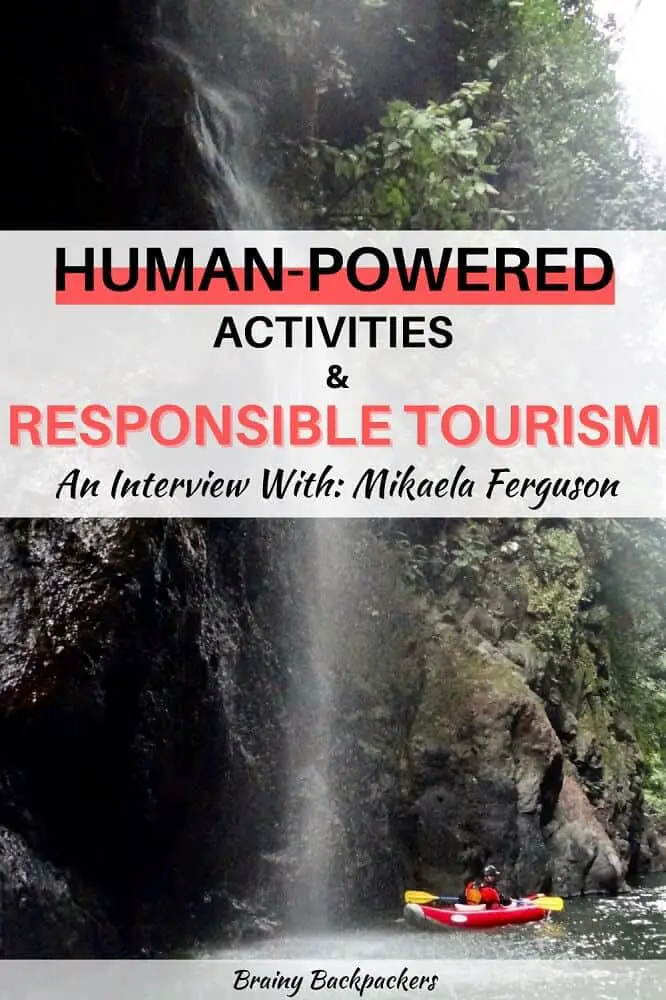An excellent way of traveling responsibly is to opt for human powered activities. This week I’m talking to Mikaela Ferguson, founder of one of Canada’s top outdoors blogs, Voyageur Tripper, about just that and my favorite topic, responsible travel.
Mikaela has worked as a wilderness guide and her big passion is the outdoors, leave no trace, and everything human-powered, especially canoeing! She will be sharing her thoughts and experience about responsible tourism from an outdoorsy point of view. Exactly my kinda girl!
But before we dig into the good stuff, let’s get to know Mikaela a little better.
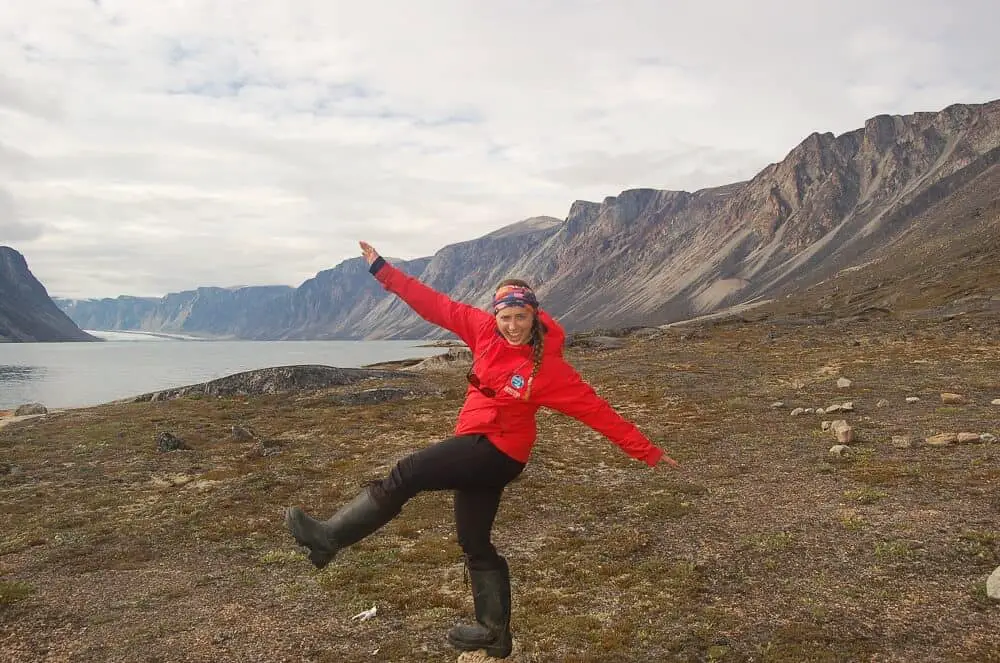
Meet Mikaela Ferguson
Mikaela is the voice behind Voyageur Tripper, a blog dedicated to outdoor adventure for everyone who isn’t a full time explorer. Mikaela worked several seasons as a wilderness guide throughout Canada, and is most passionate about arctic travel and canoe camping. She has also lived in New Zealand and India.
Currently, Mikaela works in corporate strategy in Toronto and fits in outdoor adventure whenever she can. On Voyageur Tripper, Mikaela writes educational resources and detailed trip reports about outdoor travel in Canada and New Zealand. Through the blog, Mikaela hopes to enable more people to get outside, take human-powered vacations and push themselves beyond their comfort zones.
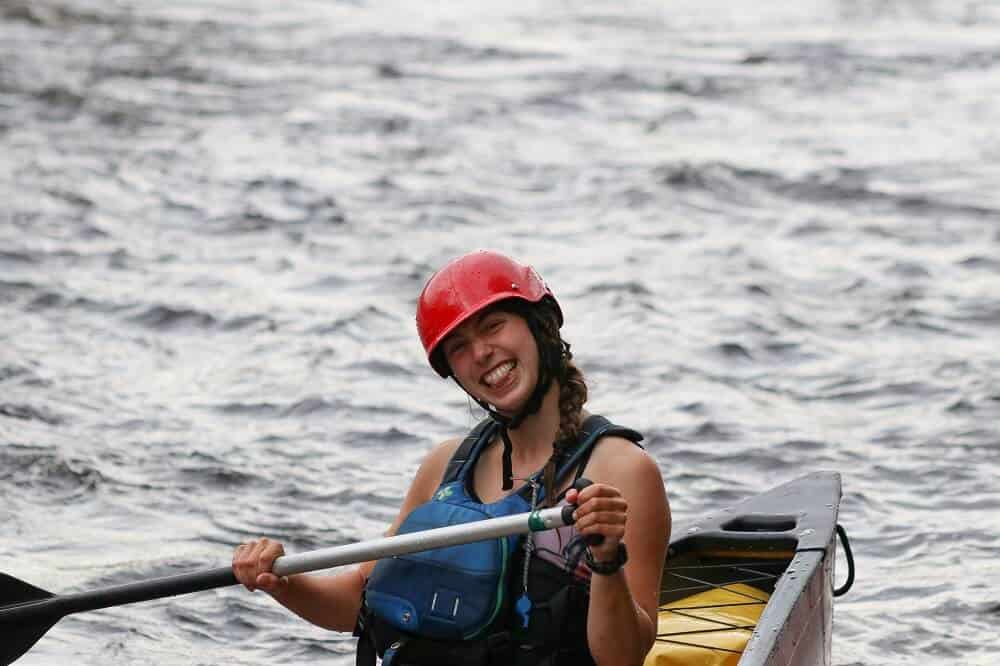
Interview with Mikaela Ferguson
What does travel mean to you?
Travel is a way for me to spend time outside in new environments. I feel the most alive when I’m away from the hustle and bustle of the city and surrounded by trees, water, and fresh air. So a huge part of travel for me is just being outside.
I also love how things that seem totally mundane at home – getting coffee, walking down the street, opening a bank account – feels completely different (and exciting) when we travel.
And as I’ve started traveling outside of Canada, I’ve become increasingly interested in different cultures. I lived in India for two months and visited my boyfriend’s family in the Middle East, and that has introduced me to a vibrant culture so different from my own.
Travel will always be anchored in exploring the natural environment of a new place, but now it also includes learning about new cultures and ways of living too.
What does responsible tourism mean to you?
For me, responsible tourism is rooted in respect for the place you are traveling to, which includes the physical landscape, the wildlife and the local community.
In action, responsible tourism means adhering to Leave No Trace principles when hiking or camping and minimizing my carbon footprint where I can.
It means never supporting businesses that harm the environment or wildlife.
And it means contributing to the community’s economy, by staying in local accommodations, hiring guides and eating at local restaurants.
Outside of travel, responsible tourism is in education – in teaching other people how they can be a responsible traveler too.
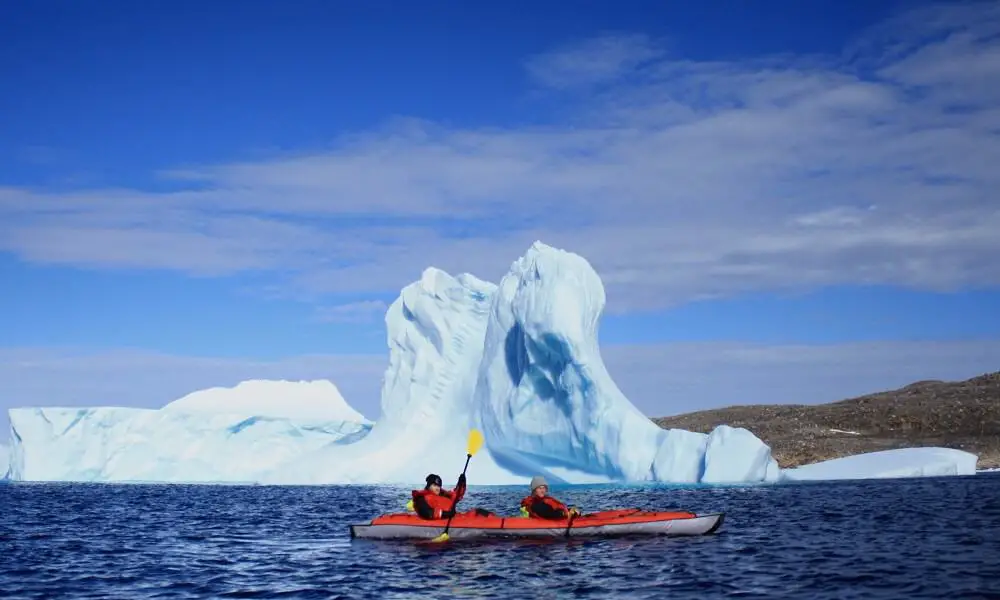
When did you first start to be conscious about the way you travel and the effects your travels have on your destination?
My first big travel experience was in the summer of 2015 when I spent four months working in Nunavut (Canada’s high arctic) as a guide.
Nunavut doesn’t receive many travelers because it’s an expensive place to fly to. There aren’t budget accommodations and because the environment is so different, travelers are forced to hire local guides for activities – almost all of which are out on the land.
And I think this is the best way to travel. Nunavut isn’t perfect by any means, but their unique circumstances mean they aren’t susceptible to overtourism, and travelers can’t come to the territory and not support the local communities. I wish all travel destinations could be like that.
One other important moment came when I was canoeing the Missinaibi River, a popular destination for Canadian canoe trips. Before the Missinaibi, I’d never given much thought to whose land I was traveling on.
At the end of our trip though we did a two day workshop with the Cree community center and learned about the Indigenous history of the river and surrounding land. And that experience changed how I thought about outdoor travel.
Whose land am I on? What’s the history here? What challenges are these people facing currently? Those are now questions I answer before starting a new canoe trip.
Have you traveled to a specific destination that you found especially sustainable that you would like to recommend to other travelers?
Canoe camping in Canada is my favorite type of travel and is an incredibly sustainable way to see the country.
There is the carbon required to get to and from the river, but beyond that the trips are very environmentally friendly.
Almost all of the tour operators in Canada abide by Leave No Trace principles and respect the environment they’re camping in. They aren’t perfect (I think more could be done around Indigenous education for the participants) but they’re close.
I also found Costa Rica to be a sustainable place to travel. I did a rafting trip on the Pacuare River and we stayed at two eco-lodges. The whitewater guides were local and we ate meals made from all natural ingredients and prepared by a local cook.
As you may have gathered, I’m a huge advocate for human-powered travel – whether it’s canoe camping, rafting, backpacking, kayak touring or another activity.
For me, finding a sustainable way of travel involves finding the activity, rather than the destination. There are sustainable trips (and totally unsustainable trips) in every country. So pick the place you want to go and then build you trip around activities that are sustainable.
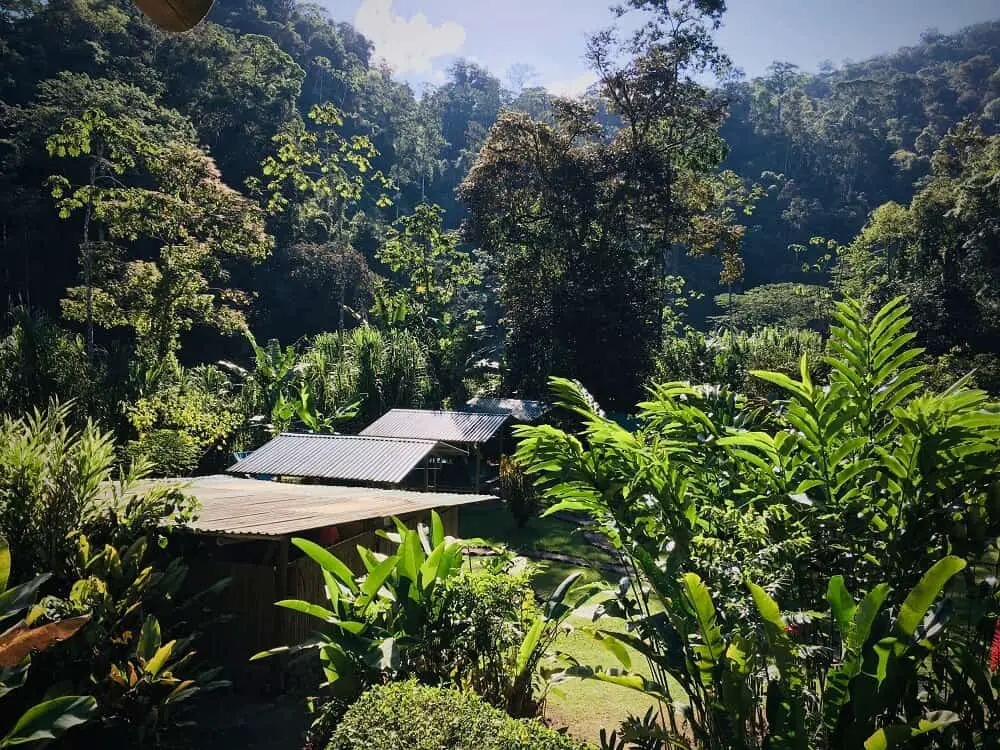
What do you do to travel responsibly?
There are three pillars to my approach to responsible tourism: 1) Community, 2) Environment, and 3) Wildlife.
Community – I think it’s important to support the local economy whenever you travel. I understand many travelers have limited funds and want to save money wherever possible. But I don’t think this is a respectful way to travel.
Stay at locally-owned accommodations and eat at neighborhood restaurants. Go on walking tours or hire a hiking guide.
And if you go somewhere to take Instagram-worthy photos, look around and see if there’s a business nearby you can support. So much of travel is about taking – so contribute something back into the economy as a thanks.
Environment – Some of the ways I respect the environment come from just following the rules. Always stay on designated hiking trails. Pack out all the garbage you bring in somewhere.
But there are other ways we can support the environment in the way we travel. As I said above, I opt for human-powered travel whenever possible. I also love eco-lodges and camping accommodations. Another way to support the environment is to travel in less-touristy areas.
Wildlife – I never do wildlife tours unless the animals are in the wild. For example, when I went swimming with dolphins in New Zealand, we were out on the open ocean.
The tour operator has a policy against baiting the dolphins and has been recognized as a wildlife-friendly tour operator. I’ll also support wildlife rehabilitation facilities if they’ve been vetted by an external organization.
There’s a Wolf Dog sanctuary in Canada that houses high wolf-content dogs that have been abandoned by their owners. They have tours that put the safety of the dogs at the forefront.
For example, we couldn’t wear winter jackets that had fur lining and we couldn’t touch the dogs.
I think wildlife tours can be an incredibly powerful way to learn about animals and support rehabilitation facilities, but you need to do your research.

What are your top 3 advice to travelers that want to travel more responsibly?
Choose human-powered activities – Go canoeing or rafting, backpacking or bike touring. The activity will be good for your physical health and the slowing down will be good for your mental health. And it’s sustainable! It’s really a win-win-win situation.
Support the local economy – Stay in local accommodation and support neighbor restaurants. Hire guides and join locally-operated tour groups. Not only will this put money into the local economy, it’ll give you a better experience too. I’ve learned so much from the locals I’ve met while traveling.
Do your research, but be flexible – Plan ahead. Research the companies you’re considering. But be flexible in what you do. Ask locals for recommendations. If an organization seems sketchy, change your plans.
See more from Mikaela
How inspiring was this! I know for sure I got inspired to do even more human-powered activities in the future, something I’m already quite passionate about. I really hope you got just as inspired as me to get out there and to do it sustainably.
Make sure you check out Mikaela’s amazing outdoors blog, Voyageur Tripper for advise and trip ideas. You can also follow her on Instagram, Facebook, Twitter, and Pinterest.
Other interviews you might find interesting:
- Put your destination before your own desires: An interview with Joshua Kian and Sarah Morgan
- Zero Waste Travel: An interview with Kendal Karstens
Pin it for later!
